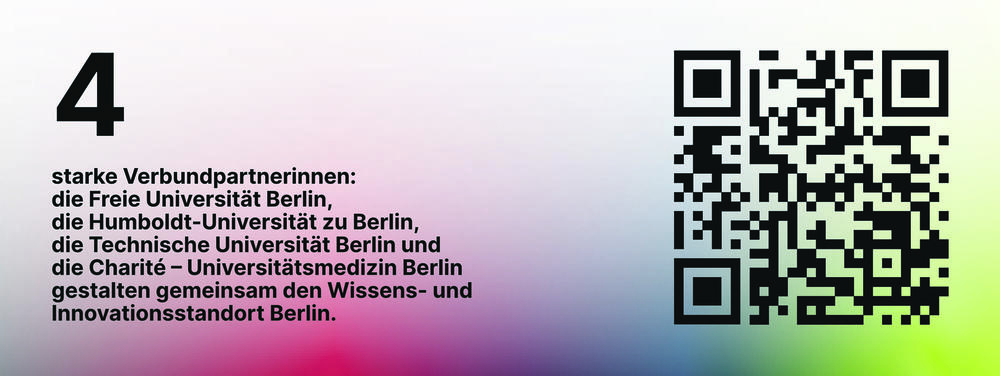The 100 most important minds in Berlin science. Episode 2: They give patients confidence
Sep 30, 2025
They destroy tumors, rummage through the dark corners of the genome, and attempt to cure incurable diseases. These Berlin-based researchers want to make medical miracles a reality.
-
Prof. Dr. Volker Haucke (Freie Universität Berlin): How do living structures arise from nothing? This question drives Volker Haucke, director at the Leibniz Research Institute for Molecular Pharmacology in the Forschungsverbund Berlin (Berlin Research Alliance) and professor at Freie Universität Berlin. Haucke was awarded the Leibniz Prize in 2024 for his research.
-
Prof. Dr. Simone Spuler (Max Delbrück Center for Molecular Medicine and Charité – Universitätsmedizin Berlin): People who suffer from hereditary muscle weakness experience an inexorable decline in strength over many years. Spuler knows this from her work at the muscle clinic at Charité, which she heads. To cure such muscular dystrophies, one must intervene in the genetic material and repair defective genes. Spuler has been striving to do this for 20 years. On the way to the clinic, she is planning initial studies on humans. A start-up is to make the gene therapies marketable.
-
Prof. Dr. med. Freia De Bock (Charité - Universitätsmedizin Berlin): How do children and adolescents stay healthy? How do social factors affect the development, progression, and healing of diseases? These are the kinds of questions addressed by the professor of health services research in childhood and adolescence, who was appointed to Charité this year. De Bock pays particular attention to children with Long Covid-like illnesses.
-
Prof. Dr. med. Carmen Scheibenbogen (Charité - Universitätsmedizin Berlin): The expert on long COVID and chronic fatigue syndrome ME/CFS is researching the causes of these diseases. The deputy director of the Institute of Medical Immunology and head of the Immunodeficiency and Post-Infectious Diseases Division wants to help those affected with existing drugs that are approved for other diseases. Her study results make her confident.
-
Prof. Dr. Eicke Latz (Charité - Universitätsmedizin Berlin): When Eicke Latz was appointed professor of experimental rheumatology at Charité and director of the German Rheumatology Research Center (DRFZ) in 2023, he realigned the research institute, bringing it even closer to patients and Charité. The aim is for basic immunology research to contribute to the treatment of rheumatism. This year, the much-cited Leibniz Prize winner was admitted to the Berlin-Brandenburg Academy of Sciences and Humanities.
-
Prof. Dr. Tilmann Kallinich (Charité - Universitätsmedizin Berlin): The teams led by pediatric rheumatologist Kallinich, immunologist Mashreghi, and Dr. Mir-Farzin Mashreghi from the German Rheumatology Research Center (DRFZ) solved what is perhaps the biggest remaining medical mystery of the coronavirus pandemic: why some children develop a severe inflammatory syndrome affecting various organ systems after a coronavirus infection. The corresponding Nature publication received enormous attention this spring, and their research is widely cited in other contexts as well.
-
Prof. Dr. Gabriele G. Schiattarella (Charité - Universitätsmedizin Berlin): The professor of cardiometabolic diseases at Deutsches Herzzentrum der Charité (German Heart Center at Charité) and working group leader at the Max Delbrück Center for Molecular Medicine researches the causes of heart failure and attempts to develop new therapies. He has already received many awards for his work. The International Society for Heart Research, a particularly prestigious professional association in this field, recently named him an “Outstanding Investigator.”
They were all featured today in the Tagesspiegel (September 30, 2025) as part of the series “The 100 Most Important People in Science.” More in the Tagesspiegel (T+, in German).

